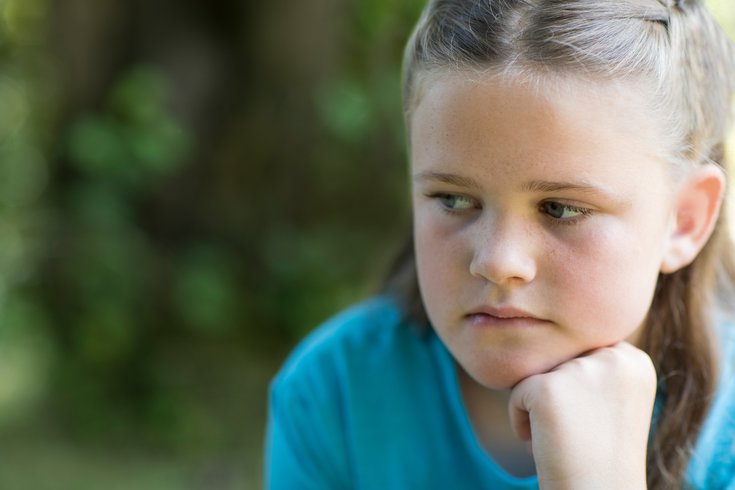
October 11, 2022
 Source/Image licensed from Ingram Image
Source/Image licensed from Ingram Image
The U.S. Preventive Services Task Force is advising that children age 8 and older be screened for anxiety – a first. Those age 12 and older should be screened for depression, a recommendation initially made in 2016.
With the mental health crisis among U.S. children worsening, the U.S. Preventive Services Task Force is now recommending that children age 8 and older be screened for anxiety.
The new guidelines, published Tuesday, mark the first time the task force has made such a recommendation. They also advise children age 12 and older be screened for depression, a recommendation first made in 2016.
Anxiety screenings should be given to children who have not been diagnosed with a mental health condition and who are not showing obvious symptoms of anxiety or depression, the task force said. But the panel declined to suggest how often these mental health screenings should take place, citing a lack of evidence.
The task force considered adding recommendations for screening for suicide risk in children and adolescents, but its final recommendations state that there is not enough evidence to weigh potential risks and benefits.
It also determined that there wasn't enough evidence to advise anxiety screenings for children age 7 and younger and depression screenings for children age 11 and under.
The task for is a panel of independent medical experts who make recommendations to guide doctors as they evaluate and treat patients.
"The task force cares deeply about the mental health of all children and adolescents," said task force member Lori Pbert, a psychologist at the University of Massachusetts' medical school. "Unfortunately, there are key evidence gaps related to screening for anxiety and depression in younger children and screening for suicide risk in all youth. We are calling for more research in these critical areas so we can provide healthcare professionals with evidence-based ways to keep their young patients healthy."
There has been an increased focus on mental health in the U.S. in the last few years, particularly during the height of the COVID-19 pandemic. In September, the task force posted draft recommendations for adults under age 65 to be screened for anxiety – another first.
But even before COVID-19 arrived in the U.S., adults and children were struggling with anxiety, depression and other mental health issues.
In the new recommendations, the task force members wrote that "the 2018-2019 National Survey of Children's Health found that 7.8% of children and adolescents aged 3 to 17 years had a current anxiety disorder."
And between 2016 and 2019, about 5.8 million children were diagnosed with anxiety, and approximately 2.7 million were diagnosed with depression, the U.S. Centers for Disease Control and Prevention reports.
The mental health crisis among children was exacerbated by the COVID-19 pandemic. In February, several leading pediatric groups called on public officials to address the growing crisis.
Dr. Tami Benton, psychiatrist-in-chief at Children's Hospital of Philadelphia, told Congress at the time, "In the first half of 2021 alone, children's hospitals reported cases of self-injury and suicide in ages 5-17 at a 45% higher rate than during the same timeframe in 2019 and, for children under 13, the suicide rate is twice that for black children than for white children."
She and other pediatric experts have pointed to delayed care due to the lack of staffing and resources as a major contributor to the crisis. An estimated 15 million children need care from mental health professionals, the American Psychiatric Association says, but there are just 8,000 to 9,000 psychiatrists treating youth in the U.S.
Benton previously said that expanding telehealth services and adding mobile crisis units in the short-term and more intensive outpatient programs in the long-term is needed.